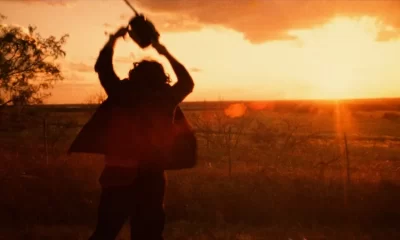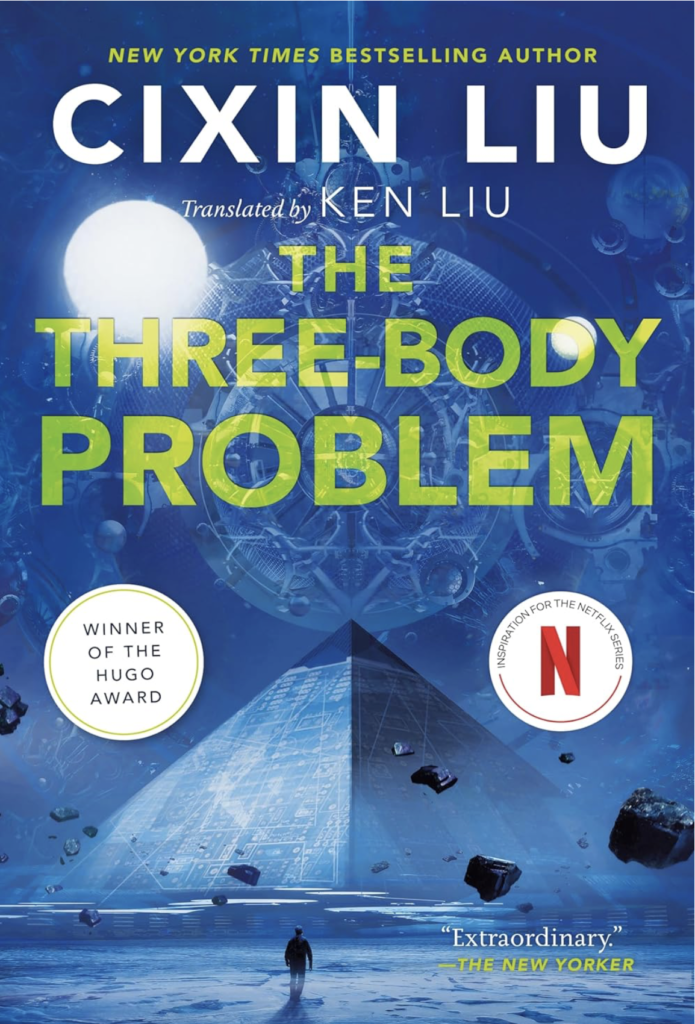Uncategorized
KUBRICK BY KUBRICK [REVIEW] @TRIBECA 2021
Audio interviews from director Stanley Kubrick shows the real approach from reclusive director
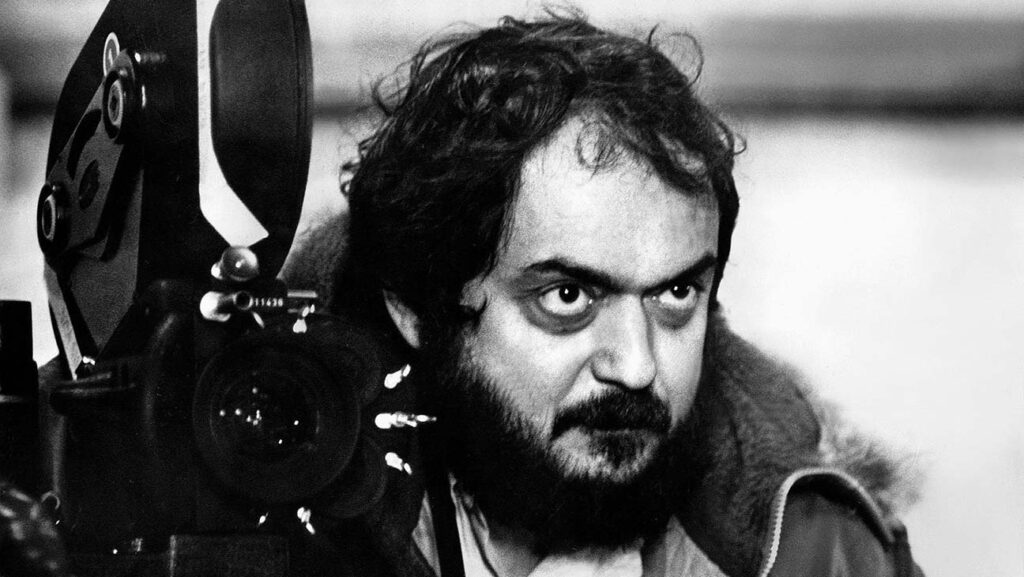

The films of Stanley Kubrick will always remain intriguing and compelling in the world of cinema. Those of whom have interpreted his films into documentaries delved into his mind trying to piece together answers from the genius of his puzzling work. Like Shakespeare, there is a market of trying to gain more insight into Kubrick through footage, photos or interviews. All these pieces are necessary to form them into a finished puzzle of who Stanley Kubrick is.
Honourable efforts such as “Stanley Kubrick’s Boxes” and Filmworker give fans and cinephiles a deep look into his craft. But Kubrick by Kubrick directed by Gregory Munro made its premiere at Tribeca Film Festival. The film gets the audience as close as they can to the filmmaker from New York.
The Interview
What better way to find more about someone than to actually hear from the source. Kubrick by Kubrick does just that as the documentary is based upon a rare audiotape interview by Michel Ciment who was a film critic and editor of Positif. It took the course of 20 years to complete these sessions where Michel Ciment was privy enough to be able to speak and interview Kubrick. The iconic filmmaker did not like giving interviews even for the releases of his film.
Ciment went on to publish a book called “Kubrick” which was based on these conversations with the director. These audio clips are the basis of Munro’s film giving the audience some VIP and exclusive treatment. It leans in towards his perspective on the films he has made. This once-in-a-lifetime opportunity for Ciment gives a chance of a lifetime for fans of this mysterious and reclusive director.
When speaking to Ciment during the interviews, Kubrick is frank and honest but philosophically brilliant about his films. But you also get a sense through the tone of his voice that not only does he want to speak of his films, he just doesn’t want to explain them like Coles notes. From this, you get a sense that you should know certain things about life. Like a rule of thumb which is the way, Kubrick comes off. He isn’t pressed for time during these interviews. But he ain’t wasting it explaining how he gets to the truth. But he belittles the audience just like the actors/actresses he has worked with that you should already know what he knows.
War Films
When asked about his war films such as Paths of Glory, Dr. Strangelove and Full Metal Jacket and how man is fighting all the time, Kubrick replies
“I mean in a work of fiction, you have to have conflict. If there isn’t a problem in a story. There can almost by definition not be a story.”
Stanley kubrick
These are among many of the brilliant philosophical samples of the thoughts of Stanley Kubrick. It highlights the documentary when it journeys through a doll-house type of background that perceives to emulate one of Kubrick’s settings. Each film gets a turn through its famous prop or movie poster foreshadows of what film he is to speak to next. This is where his voice and what he says keeps the attention of the audience and much value to the documentary.
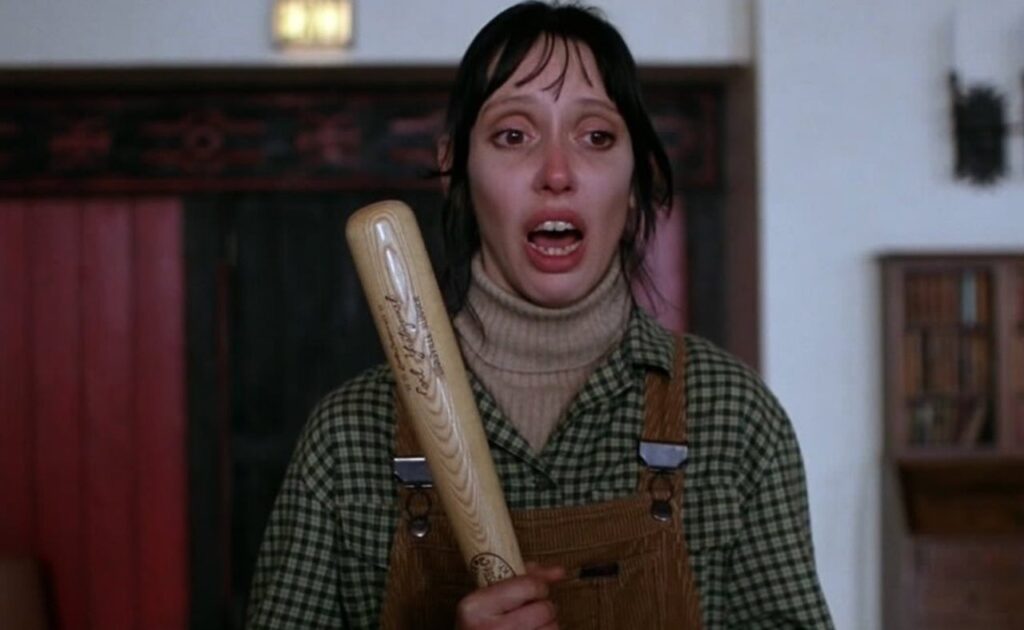

Kubrick on The Shining
Director Munro chooses the interviews wisely from the stars who talk about Stanley Kubrick as they all hold merit. When speaking about the number of takes he films for one scene especially when filming The Shining, Jack Nicholson calls him a quintessential perfectionist. Shelley Duvall was almost driven to madness being part of Kubrick’s approach to the film. She explains that she would feel dead inside after doing so many takes. Once they come back alive, Duvall explains, “and you forget all reality other than what you’re doing.” She was never the same after this film but was part of one of the most iconic scenes in film history.
Interviews of Malcolm McDowell and him commenting on working with Stanley Kubrick in A Clockwork Orange were groundbreaking. Kubrick’s transparent passion for spontaneity is crucial. McDowell calls the director an artist. He says he doesn’t prepare when filming or does not know what scene he is actually shooting. Kubrick emphasizes his style much further by quoting James Joyce in saying that
“Accidents are the portal to genius. You can start with a plan but depending on where the ball bounces and where people are standing, opportunities arise. Which if you can exploit, you can make it better.”
Stanley kubrick quoting James Joyce
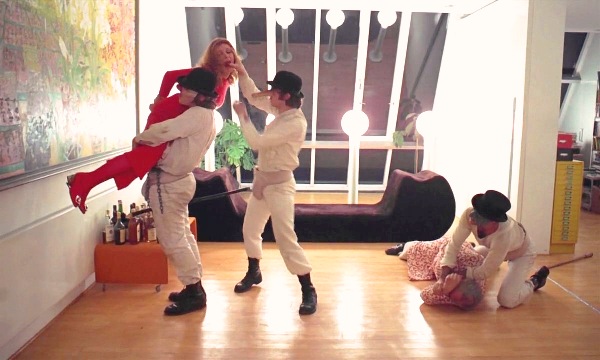

Kubrick on A Clockwork Orange (1971)
Thus, we have scenes like in A Clockwork Orange where Malcolm McDowell explains was not planned. In the violent home invasion scene, McDowell starts “Singing in the Rain” and kicks and slaps the homeowners. He explains how organic but difficult scenes cultivate through Kubrick’s approach. The banning of the film in England was for many years because of its sensationalism of violence. McDowell defends the film saying there is more violence in the news and in John Wayne films. A Clockwork Orange is problematic because McDowell’s character Alex is seen as an anti-hero. Something that they did not embrace back then.
This duality of man is what Kubricks sums up in most of his films. The battle of good versus evil inside one’s mind and seeing oneself as being good in a world of evildoers. This being in many of his characters where he shows them externalizing their dark side and ambitions in full fledge. Its a shadow of truth where Kubrick pushes the pendulum through his creativity and composition. Done through his style of lighting and lenses, Kubrick plays with this duality so it can resonate with his audience. Sometimes the good are not always good and the evil are not as evil as you think.
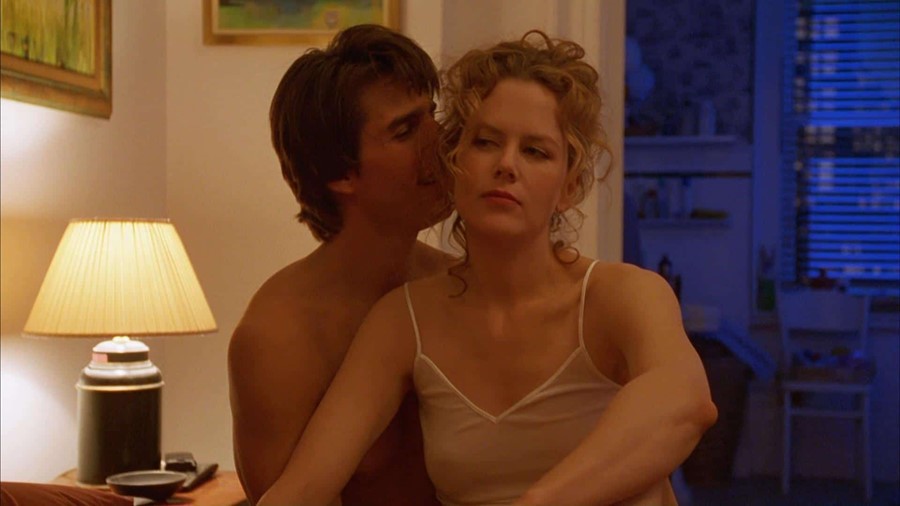

Kubrick on Eyes Wide Shut
This brings us to the last film Kubrick shot before his passing which was Eyes Wide Shut. Another edgy controversial film that took years to make and upset the expectations of many critics. As Tom Cruise says in an interview that the film is not about sex rather sexual obsession and jealousy. The film does go on to focus on Cruise’s character of Dr. William Harford. His journey throughout the film harbours on this duality. He struggles with acting upon the dark sexual desires offered to him on a silver platter. All this while being married to who he thinks is a faithful wife. Alas, Cruise speaks of when he got the call and was told that Kubrick had passed away in his sleep.
This is where many fans will become disappointed because there is no insight towards his death in Kubrick by Kubrick. Conspiracy theories of the Illuminati being behind the death were not mentioned. Not even the fact that the orgy scenes were a reflection of the common practices of the privileged were brought to light. The other theories of Rodney Ascher’s Room 237 were not up for discussion or examination. This was not necessary as it would be another can of worms for director Gregory Munro to open.
Kubrick by Kubrick is a simple film sourcing directly from a complex person. The documentary is an examination of the thought process behind the puzzling style of Stanley Kubrick’s filmmaking. His metaphorical whimsical manner in which he explains his philosophies to filmmaking is what drives this film to the levels that it needs to be. There is much to discuss in his films and what made them classics. Truth is the expression by the legendary director. There is nobody else that can tell the truth about his films better than Stanley Kubrick. And that is how you separate the truth from the truth.
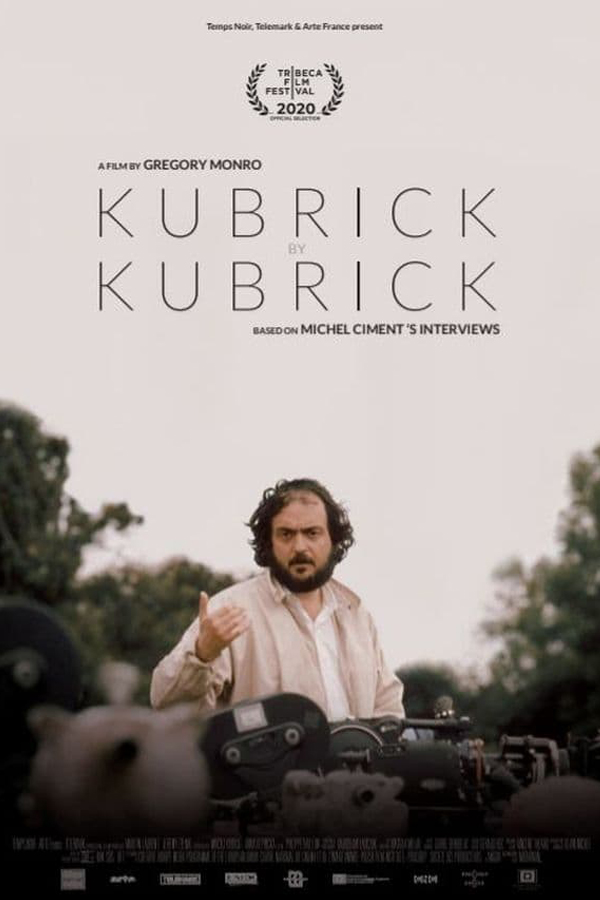

-



 ACTORS/ACTRESSES11 months ago
ACTORS/ACTRESSES11 months agoFuriosa Gets a Stunning 7-Minute Standing Ovation @Cannes 2024
-



 FEATURES7 months ago
FEATURES7 months agoThe Gesuidouz Rocks Up @TIFF 2024
-



 ACTORS/ACTRESSES11 months ago
ACTORS/ACTRESSES11 months agoMegalopolis Receives Massive 10-minute Standing Ovation @Cannes 2024
-



 FEATURES9 months ago
FEATURES9 months agoRiff Raff Set to Ruffle Feathers @TIFF 2024
-



 DOCUMENTARIES12 months ago
DOCUMENTARIES12 months agoClick Trap Reveals Truth @Hot Docs 2024
-



 ACTORS/ACTRESSES11 months ago
ACTORS/ACTRESSES11 months agoKinds of Kindness Receives A Mere 4.5 Minute Standing Ovation @Cannes
-



 ACTORS/ACTRESSES11 months ago
ACTORS/ACTRESSES11 months ago#AMFAD: All My Friends Are Dead @Tribeca 2024
-



 DOCUMENTARIES11 months ago
DOCUMENTARIES11 months agoMyriam El Hajj’s Diaries from Lebanon@Hot Docs 2024


